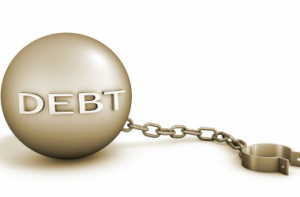 Today’s top story: 3 steps to tame your debt in an hour or less. Also in the news: 10 housing and mortgage trends to watch for in 2018, how one woman ditched over 50K in debt, and why to be wary of instaloans in stores.
Today’s top story: 3 steps to tame your debt in an hour or less. Also in the news: 10 housing and mortgage trends to watch for in 2018, how one woman ditched over 50K in debt, and why to be wary of instaloans in stores.
3 Steps to Tame Your Debt in an Hour or Less
Concrete steps.
10 Housing and Mortgage Trends to Watch for in 2018
What to keep an eye on.
How I Ditched Debt: A Wish List Kept Her Going
Read a success story.
Retailers now offers Instaloans to pay for purchasesBuyer beware,
 Today’s top story: Paying for fake organic food. Also in the news: People who eschew checking accounts, 4 questions for your local organic farmer, and defrauded students are losing their debt relief.
Today’s top story: Paying for fake organic food. Also in the news: People who eschew checking accounts, 4 questions for your local organic farmer, and defrauded students are losing their debt relief. Today’s top story: 5 ways to reduce credit card interest. Also in the news: Holiday hosting tips to be safe, holiday tipping guide, and the pros and cons of using debit vs. credit cards.
Today’s top story: 5 ways to reduce credit card interest. Also in the news: Holiday hosting tips to be safe, holiday tipping guide, and the pros and cons of using debit vs. credit cards. Today’s top story: Is Bitcoin safe? Also in the news: How to buy better gifts with credit card rewards, must-have tools and tips for year-end retirement planning, and smart money lessons for kids that can last a lifetime.
Today’s top story: Is Bitcoin safe? Also in the news: How to buy better gifts with credit card rewards, must-have tools and tips for year-end retirement planning, and smart money lessons for kids that can last a lifetime.  Today’s top story: How not to go broke attending holiday parties. Also in the news: Self-taught financial advisers keep it real about money, how to determine if your taxes are going up, and how to spend your extra FSA money.
Today’s top story: How not to go broke attending holiday parties. Also in the news: Self-taught financial advisers keep it real about money, how to determine if your taxes are going up, and how to spend your extra FSA money.